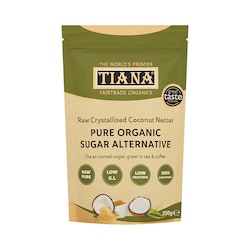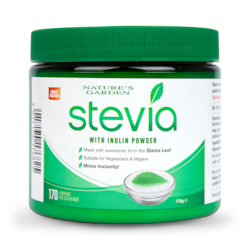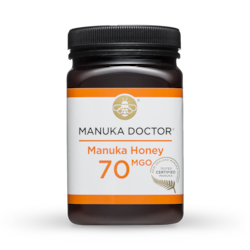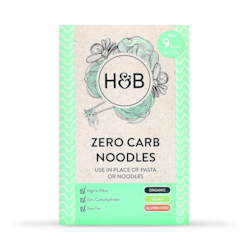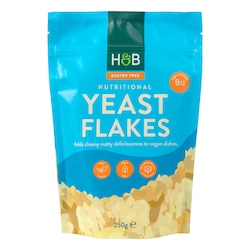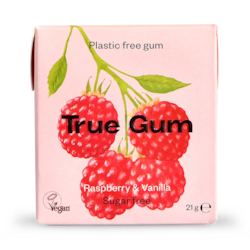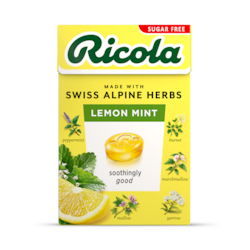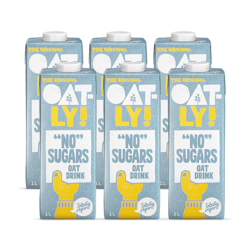20% off £30
Code:EASTER
18 sugar types - plus other FAQs

Discover all your need to know about the different types of sugar, and find the answers to some sweet sugar FAQs.
Summary
118 types of sugars
The sugars we eat fall into two categories; monosaccharides and disaccharides. What is glucose? Glucose is plant sugar and is in most carbohydrate...
2Sugar FAQs
Find out the answers to these sugar FAQs, including what sugar is made of and its impact on the body. What is sugar? Sugar is a blanket term for...
3The health risks of sugar
Sugar is easy to over-eat and cutting back on your intake will definitely benefit your short term and long term health. You’ll be setting a great...
You bake with it, sprinkle it over food, and add it to hot drinks. Sugar makes things taste sweeter. But what are the side effects of eating or drinking too much sugar?
Sugar is a natural food, but that doesn’t mean it’s good for you. Sugar contains very few essential nutrients, and has no protein or fats, very few vitamins or minerals, and no fibre. It’s essentially a pure carbohydrate.
While there’s no reason to fear carbohydrates (it’s a useful form of energy for our body and brain after all), most of us tend to eat too many so cutting back on sugar is a good way to lower your carb intake.
Let’s start with 18 types of sugar:
18 types of sugars
The sugars we eat fall into two categories; monosaccharides and disaccharides.
Monosaccharides
What is glucose?
Glucose is plant sugar and is in most carbohydrate foods. When it is in fruit and vegetables, it’s healthy and important for the body. When it’s in glucose syrups, it’s not so healthy.
What is fructose?
Fructose is fruit sugar, and found in fruits, vegetables, and honey. Galactose is part of lactose, the sugars in milk and dairy products.
Disaccharides
What is sucrose?
Sucrose is table sugar (glucose and fructose), usually labelled as granulated, demerara, or caster sugar. If a food has “added sugars”, they are probably sucrose.
What is lactose?
Lactose (glucose and galactose) is the sugar in milk and dairy products. You’ll also find it in dry mixes like sauces and soups.
What is galactose?
Galactose is another name for lactose sugars.
What is maltose?
Maltose is formed when starch breaks down, and is in malted drinks, beer, and glucose syrups.
What is starch?
Starch is a carbohydrate found in lots of foods including cereals, pasta, vegetables, bread, beans, rice and potatoes. It provides energy needed for our muscles and brains to function normally.1
What is xylitol?
Xylitol is a cross between sugar and alcohol. You can find it in many fruits, vegetables and even birchwood.
It’s often used in sugar-free products like sugar-free mints, chewing gums and other sweets.2
Other types of sugar
These types of sugar will fall into the categories above.
What is molasses?
Also known as black treacle, this syrupy dark substance is a byproduct of the sugar making process.
What is confectioners’ sugar?
Also known as powdered sugar or icing sugar, this sugar is usually used to make icing or to dust bakes/fruit.
What is powdered sugar?
See above for confectioners’ sugar.
What is caster sugar?
Finely granulated white or pale golden sugar.
What is muscovado sugar?
Unrefined can sugar that contains natural molasses.
What is demerara sugar?
Comes from sugarcane and retains large grains that provide a lovely, crunchy texture when used in baking.
What is granulated sugar?
White sugar, regular sugar, table sugar… that’s granulated sugar!
What is stevia?
Stevia is an incredibly sweet-tasting plant that has been used as a zero-calorie sweetener for centuries.
What is refined sugar?
Refined sugar is sugar that has been processed from a food source, e.g. sugar cane or corn.
What is raw sugar?
Raw sugar is processed in a way to retain some of the molasses. It usually has a caramel-y flavour and golden brown colour.
What is palm sugar?
Palm sugar is made from the sap of palm trees.
Sugar FAQs
Find out the answers to these sugar FAQs, including what sugar is made of and its impact on the body.
Sugar is a blanket term for lots of different forms of short-chain carbohydrates. Table sugar is sucrose but there’s more to sugar than just the white granulated stuff.
Your average granulated white sugar, or table sugar, is made in the leaves of sugarcane plants, which is then stored in the sugarcane stalks.
The sugarcane plants are harvested and the cane juice is extracted from the stalks and processed in several stages before becoming sugar as we know it! 3
Sugar rushes are a myth! Research suggests the well-known sugar-rush experience of having a surge of energy after consuming sugar is simply not a thing.
Scientists in the UK and Germany analysed data from 31 studies involving around 1300 adults to study the effect of sugar on mood, e.g. depression, alertness, anger and fatigue. The results showed that sugary treats have no positive effect on mood, regardless of how much the participants consumed.4
Sugars in food can either be naturally occurring, e.g. the sugars in bananas, or they can be added sugars, like in cakes.
Natural sugars are considered a better choice, as they also contain fibre and other nutrients. Added sugar is pure carbohydrate and doesn’t have any other nutrient benefits, it does taste good though!
All fruits contain sugar, but some more than others! Here are some of the fruits packing the most sugar:
- Mangoes
- Grapes
- Cherries
- Pears
- Watermelon
- Figs
- Bananas
Don’t worry too much about the sugar in these fruits though, when eaten in moderation, they make valuable additions to your diet and taste amazing!
This usually means that foods or drinks haven’t had sugar added to them as an ingredient, e.g. sugar added to orange squash.
Oranges are sweet but don’t contain added sugar, whereas an orange squash may contain added sugar.
How many calories does sugar have?
All sugars are almost pure carbohydrate. As a general rule, 10g table sugar (just over 2 teaspoons) contains 10g carbohydrates and 40 calories.
What does sugar do to the body?
Sugar acts as fast energy for the body, as it easy to break down.
However, the body reacts differently to natural sugar from fruits and vegetables than it does with added ‘free sugars’ in cakes, chocolate, sweets, drinks, juices, etc.

It’s useful for pre-workout energy, keeping you going throughout the day – and I’m sure we don’t need to tell you how tasty it makes food!
Like with anything, enjoying it in moderation is fine, it’s when you consume too much that it can start to impact your life negatively.
Here are some of the ways sugar can affect your body:
Sugar and dieting
Sugar is tasty, calorie dense, and easy to over-eat.
If you are trying to stick to a healthier diet, or control your calories to lose weight, you would do well to avoid all extra added sugar.
Get your energy from more nutrient-dense foods, and your happy hormones from exercise and non-food rewards.
Sugar isn’t unhealthy and shouldn’t be demonised as a bad food. But it should always be looked at in the context of your health, your nutrition habits, and your diet goals.
Sugar provides a lot of energy, which can be a good and a bad thing. We all need energy and our brains need carbohydrate but too much energy is stored as body fat.
Make sure your diet consists of a variety of foods.
Eat fresh, nutritious foods and try to cook more of your food at home instead of relying on processed foods.
Keep active and stay fit. Limit your sugar intake to meet your energy needs, and have a look at our sugar alternatives.
If you are trying to manage your weight, the main problem with sugar is that it is so calorie dense. It is pure carbohydrate, with no protein, vitamins, minerals, or essential fats.
You need to focus on nutrient dense foods, not empty calories. If you eat less sugar and more nutritious food, your health and waistline will benefit.
Handpicked content: What is a balanced diet?
The health risks of sugar
Sugar is easy to over-eat and cutting back on your intake will definitely benefit your short term and long term health. You’ll also be setting a great example for younger members of the family and reduce your chances of the following risks:
- Sugar contributes to serious disease
We all know that sugar can be bad for our teeth. But too much sugar is a leading contributor to heart disease, type 2 diabetes, and even some cancers.
Excessive sugar intake can raise triglycerides and oxidized LDL, increase your blood glucose and insulin levels and contribute to obesity. These are all major health risk factors.
- Sugar is addictive
Eating sugar releases pleasure hormones into the reward centre of our brain.
But this feeling quickly wears off.
And because calories from sugar don’t fill us up as much as energy from other foods, we are left craving more.
- Sugar can make us gain weight
Not all sugars are created equal, particularly ‘free’ or added sugars.
They’re often found in junk foods such as ready meals, biscuits or puddings that also contain unhealthy ingredients such as saturated fats, which is why they can contribute to weight gain.
Added sugars can also be hidden in foods such as ketchup, sauces and fruit juice.
Free sugars are ‘empty calories’ too; they contain very few nutrients so they only contribute extra calories to your diet.
The World Health Organisation (WHO) say added sugars should only make up 10 per cent of our daily diet, around 200 calories in a 2000-calorie diet, but now believe the limit should be just 5%. We get around 12% of our calories from added sugars – well over the recommended amount.
Try to cut your added sugar intake to 100 calories a day by choosing natural sugar alternatives such as Stevia, agave syrup or honey, and base your diet around whole foods rather than processed foods.
- Sugar could trigger diabetes
Sugary foods often have a high glycaemic index (GI), meaning they’re quickly digested and absorbed, triggering a rapid rise in blood glucose, or blood sugar.
Your body then produces insulin to get glucose out of the blood and into your muscles and liver.
Over time, repeated cycles of blood sugar highs and lows can cause the body to become resistant to insulin, triggering diabetes.
Sticking to a healthy balanced diet with plenty of low GI foods can keep your blood glucose levels steady, reducing your risk of developing diabetes.
Eat lots of whole-grain foods, beans, low-fat dairy, porridge oats, fresh fruit and vegetables, and nuts and seeds to help stabilise your blood glucose.
Handpicked content: Keeping your blood sugars balanced with food
- Sugar causes wrinkles
Apart from internal damage, sugar could also contribute to the ageing process.
When we eat sugary foods, sugar molecules bind to protein structures such as collagen and elastin that help keep skin plump. This weakens them so they lose their elasticity.
The fibres then become stiff, brittle and prone to breaking – a process called glycation – causing sagging and wrinkles.
So avoiding high GI foods like white bread and biscuits could also help you avoid crow’s feet!
- Sugar can be addictive
Animal studies have discovered that sugary foods stimulate the same parts of the brain that respond to heroin and cocaine, while a study by Yale University found our bodies don’t know when we’ve had enough of some types of sugar.
While glucose suppresses the parts of the brain that make us hungry, fructose does not; we simply can’t tell when we’ve eaten too much.
But critics say most of this research is based on high-fructose corn syrup.
Although widely used in food and drinks in the US, we eat very little in the UK so there’s less cause for concern.
Fruit does contain natural fructose, but in very small amounts. It’s also full of fibre and vitamins, so cut processed foods out of your diet rather than fruit and veggies to limit your fructose intake.
- Sugar damages our teeth
There’s no dispute that sugar is bad for our teeth.
The bacteria in your mouth use it to produce acid, which causes tooth decay.
Over time, tooth enamel breaks down, which causes holes. You may then need fillings or, worse, your tooth may have to be removed.
Eating sugar-free foods and using sweeteners to replace sugar can reduce the number of attacks on your teeth.
The British Dental Health Foundation says the sweetener Xylitol in particular can help protect your teeth, as it prevents bacteria from sticking to them and could even replace the minerals in tooth enamel.
- Obesity in children and adults
Sugary foods don’t fill us up and they make portion control difficult.
Be aware that sugar could put you at risk of a fatter future. It could even lead to obesity and all the health risks that come with it.
There’s no need to demonise sugar completely. But get control of your sugar consumption and you will face a healthier future.
Be aware of how much you eat, start reading food labels, and see how much sugar is in the food and drink you enjoy.
Sugar has become the latest evil in our diets, linked to a number of conditions such as obesity and diabetes.
US health experts are even calling for sugar to be regulated like tobacco or alcohol, they believe it to be so harmful to our health.

Should we still eat fruit?
High levels of industrial fructose are bad for you, but eating fruit isn’t. One 2013 study clearly found 4that industrial, not fruit, fructose lead to various metabolic conditions.5
Other research has found that processed fructose was correlated with high blood pressure, but fructose from fruit was not.6
Another study found that people who ate a moderate amount of fruit actually did better in a weight loss test than those who restricted all fructose intake.7
The bottom line is that whole fruits act differently from processed fructose additives. While you should absolutely eliminate products with added fructose from your diet, you should also absolutely keep eating fruit.
This article has been adapted from longer features appearing in Healthy, the Holland & Barrett magazine. Advice is for information only and should not replace medical care. Please check with your GP or healthcare professional before trying any supplements, treatments or remedies. Food supplements must not be used as a substitute for a varied and balanced diet and a healthy lifestyle.
Last updated: 24 June 2021
- https://starchinfood.eu/understanding-starch/
- https://www.ncbi.nlm.nih.gov/pmc/articles/PMC6723878/
- https://www.agfoundation.org/news/where-does-sugar-come-from
- https://www.sciencefocus.com/news/theres-no-such-thing-as-a-sugar-rush/
- http://www.ncbi.nlm.nih.gov/pubmed/23933265
- http://diabetes.diabetesjournals.org/content/62/10/3307
- http://www.ncbi.nlm.nih.gov/pubmed/21621801







